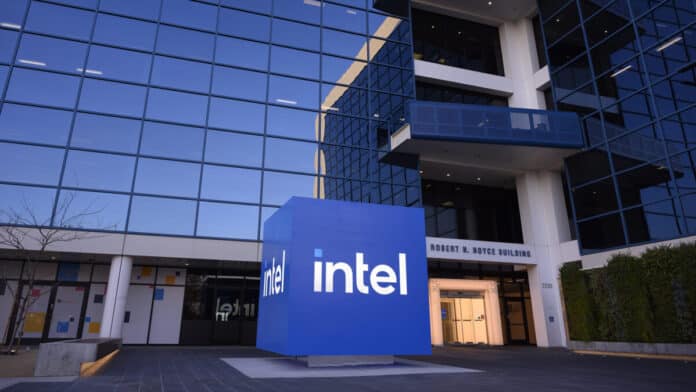In a move that marks one of Washington’s most direct interventions in the tech sector, the U.S. government has taken a 9.9% stake in Intel, investing $8.9 billion in the struggling American chipmaker.
The deal was announced Friday after weeks of speculation and closed-door negotiations between Intel CEO Lip-Bu Tan and U.S. President Donald Trump. According to the arrangement, the government will purchase 433.3 million primary shares of Intel common stock at a discount price of $20.47 per share, equivalent to a 9.9 percent stake in the company.
The equity stake isn’t new money, but the conversion of existing federal grants that Intel had already been promised. About $5.7 billion comes from the unpaid CHIPS Act grants, while $3.2 billion comes from the Defense Department’s Secure Enclave program. Intel has already received $2.2 billion in CHIPS grants, bringing the government’s investment to $11.1 billion in total federal support.
“As the only semiconductor company that does leading-edge logic R&D and manufacturing in the U.S., Intel is deeply committed to ensuring the world’s most advanced technologies are American made,” said Pat Gelsinger, CEO of Intel.
“The administration’s focus on U.S. chip manufacturing is driving historic investments in a vital industry that is integral to the country’s economic and national security. We are grateful for the confidence the President and the Administration have placed in Intel, and we look forward to working to advance U.S. technology and manufacturing leadership.”
Despite owning nearly 10% of the company, the U.S. government will have no Board representation or other governance or information rights. However, it will receive a five-year warrant to buy another 5% of Intel stock at the same $20 price, exercisable only if Intel ceases to own at least 51% of the foundry business.
As part of the deal, the government has agreed to drop the claw-back and profit-sharing conditions attached to Intel’s prior $2.2 billion CHIPS grant, giving the chipmaker more financial flexibility as it pushes ahead with U.S. investments.
A ”Great Deal”
President Trump called the agreement “a great deal” and suggested it came about after a tense White House meeting earlier this month. At the time, he had publicly demanded Tan’s resignation over the CEO’s past ties to Chinese firms.
But by the end of their talks, Trump said, “He walked in wanting to keep his job, and he ended up giving us $10 billion for the United States. So we picked up $10 billion.”
Welcoming the announcement, Intel CEO Lip-Bu Tan underscores the company’s commitment to developing and manufacturing the world’s most advanced chips in America.
“President Trump’s focus on U.S. chip manufacturing is driving historic investments in a vital industry that is integral to the country’s economic and national security. We are grateful for the confidence the President and the Administration have placed in Intel, and we look forward to working to advance U.S. technology and manufacturing leadership,” Tan added.
For Intel, the agreement comes at a critical moment. Once the undisputed leader in computer chips, it’s now struggling to keep up with rivals like AMD and NVIDIA, missing the smartphone revolution and lagging in the fast-growing AI sector. Last year, it lost nearly $19 billion and recently cut thousands of jobs. At $111 billion, Intel’s market value has fallen by more than 50% since 2021, highlighting the scale of its challenges.
Intel’s stock jumped 5.5% in regular trading on Friday before slipping 1% in after-hours trading once the deal was confirmed.

